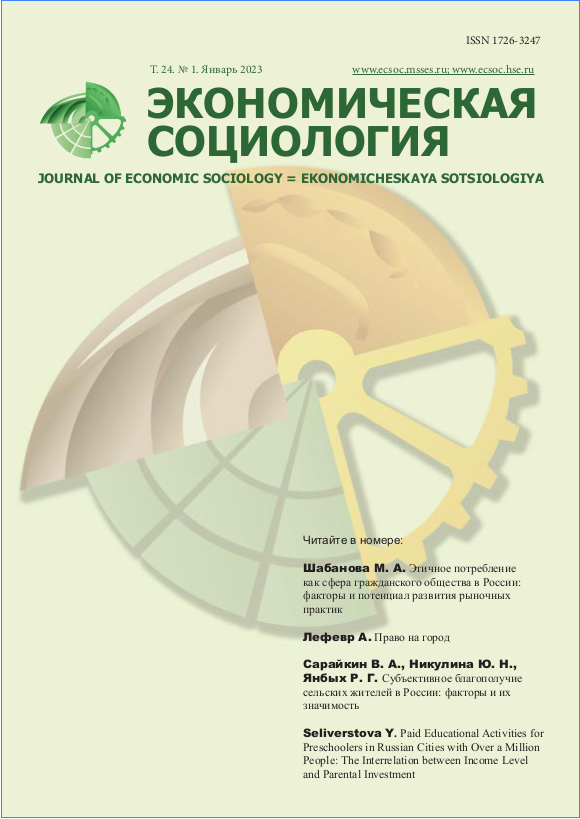The Right to the City (excerpt)
Abstract
The Right to the City is an idea and a slogan first proposed by French philosopher Henri Lefebvre in his 1968 book, Le Droit à la ville. In this book, Lefebvre critically analyzes thoughts and activities related to urbanism and calls for action to reclaim the city as a ‘to-created space’—a place for life detached from the growing and negative effects, evident in the last two centuries, of commodification and capitalism on social interaction and the rise of spatial inequalities in cities worldwide. The Journal of Economic Sociology publishes the first chapter “Industrialisation et urbanisation” (“Industrialization and Urbanization”). It traces the reasons for the crisis of the city—competitive capitalism and industrialization—in their theoretical and practical dimensions. Lefebvre also distinguishes three periods of the destruction of the city, and discusses the trends that lead to the renewal of the city in the managed society of consumption. He predicts serious dangers and raises the issue of the city society as a political one.













